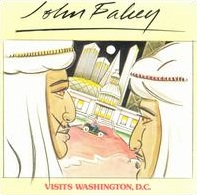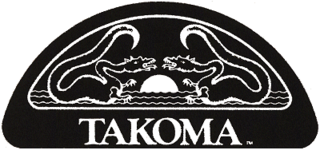
Takoma Records was a small but influential record label founded by guitarist John Fahey in the late 1950s. It was named after Fahey's hometown, Takoma Park, Maryland, a suburb of Washington, D.C.
Peter Lang is an acoustic guitarist who recorded for Takoma Records with John Fahey and Leo Kottke.

American primitive guitar is a fingerstyle guitar music genre, developed by the American guitarist John Fahey in the late 1950s. While the term "American primitivism" has been used as a name for the genre, American primitive guitar is distinct from the primitivism art movement.
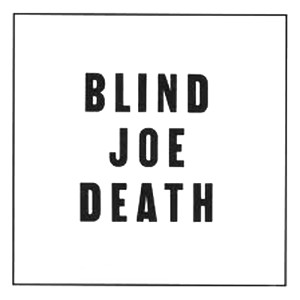
Blind Joe Death is the first album by American fingerstyle guitarist and composer John Fahey. There are three different versions of the album, and the original self-released edition of fewer than 100 copies is extremely rare.

John Aloysius Fahey was an American fingerstyle guitarist and composer who played the steel-string acoustic guitar as a solo instrument. His style has been enormously influential and has been described as the foundation of the genre of American primitive guitar, a term borrowed from painting and referring mainly to the self-taught nature of the music and its minimalist style. Fahey borrowed from the folk and blues traditions in American roots music, having compiled many forgotten early recordings in these genres. He would later incorporate 20th-century classical, Portuguese, Brazilian, and Indian influences into his work.

The Voice of the Turtle is the seventh album by American guitarist John Fahey. Recorded and released in 1968, it is considered one of his more experimental albums, combining not only folk elements, but shreds of psychedelia, early blues, country fiddles, ragas, and white noise. The album had many reissues with various track listings, jacket designs and mismatched titles.
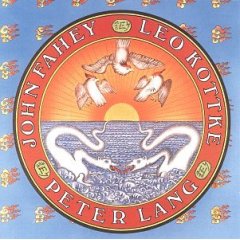
Leo Kottke/Peter Lang/John Fahey is a split album by American guitarists Leo Kottke, Peter Lang, and John Fahey, released in 1974.
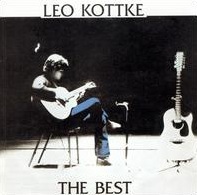
The Best is a compilation double album of American guitarist Leo Kottke's releases on the Capitol label. The liner notes were written by Dr. Demento.

The Leo Kottke Anthology is a two-disc compilation of American guitarist Leo Kottke's releases on the Takoma, Capitol and Chrysalis labels, covering the first 15 years of his career. It includes liner notes by Kottke himself for each song and an essay by Mark Humphrey.

The Yellow Princess is the ninth album by American folk musician John Fahey. Released in 1968, it was his second and last release on the Vanguard label.

Death Chants, Breakdowns & Military Waltzes is a 1963 album by American fingerstyle guitarist and composer John Fahey. Various sources show either a 1963 or 1964 original release. It was Fahey's second release and the first to gain a national distributor.
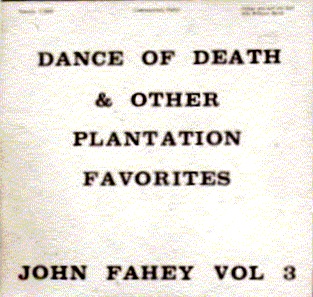
The Dance of Death & Other Plantation Favorites is the third album by American fingerstyle guitarist and composer John Fahey, released in 1965. The 1999 reissue contained four previously unreleased tracks.

Fare Forward Voyagers (Soldier's Choice) (or simply, Fare Forward Voyagers) is an album by American fingerstyle guitarist and composer John Fahey, released in 1973. It contains three songs, one comprising a complete side of the original LP.
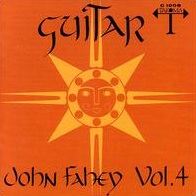
The Great San Bernardino Birthday Party & Other Excursions is an album by American fingerstyle guitarist and composer John Fahey, released in 1966. The cover simply labels the album Guitar Vol. 4 while the liner notes label it The Great San Bernardino Birthday Party & Other Excursions. The title never appeared on the record labels themselves. It marked the beginning of Fahey's interest in his recording of experimental soundscapes and sound effects. Despite Fahey's distaste for the 1960s counterculture, it is his release most often referred to as psychedelic.

America is an album by American folk musician John Fahey, released in 1971. Originally intended to be a double album, it was released as a single LP. The unreleased material was subsequently restored in later CD and vinyl reissues.
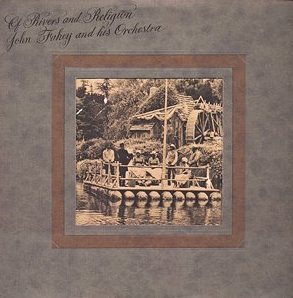
Of Rivers and Religion is an album by American folk musician John Fahey, released in 1972. It was his first recording on a major label and is credited to John Fahey and His Orchestra. It marked a significant change from Fahey's previous releases, incorporating a backing band and performing songs and arrangements in a Dixieland jazz style. Although Time picked it as one of the Top Ten albums of 1972, it was also a difficult album to market and had little enthusiasm at Reprise.

The Best of John Fahey 1959–1977 is a compilation album by American fingerstyle guitarist and composer John Fahey, released in 1977. The songs are collected from four of Fahey's dozen or so releases up to that point.

Railroad is an album by American fingerstyle guitarist and composer John Fahey, released in 1983. It was originally released as Railroad 1 by mistake. The Shanachie Records reissue is correctly labeled as Railroad. It was his last principal recording for Takoma Records, the label he founded in 1959.
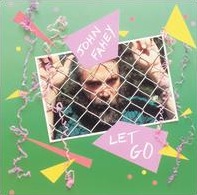
Let Go is an album by American fingerstyle guitarist and composer John Fahey, released in 1984. It was his first release on the Varrick label after over 25 years on his own label Takoma, as well as a few releases on other labels.
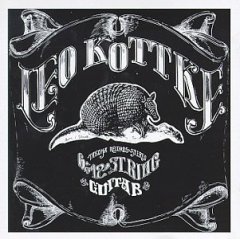
6- and 12-String Guitar is the second album by Leo Kottke, a solo instrumental steel-string acoustic guitar album originally released by John Fahey's Takoma Records in 1969. It is popularly known as the Armadillo album after the animal illustrated in the distinctive cover art. Although Kottke has had a prolific career as a recording artist, 6- and 12-String Guitar remains his best-known album.
